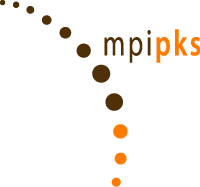
Machine Learning for Quantum Many-body Physics
Workshop Report
This one-week workshop covered the emerging research area that applies machine learning techniques to analyze, represent, and solve quantum many-body systems in condensed matter physics. Over the last few years, researchers with diverse backgrounds in theoretical condensed matter physics used artificial intelligence algorithms for a variety of purposes including phase classification and characterization, state compression, feature extraction, wavefunction representation with neural networks, and to draw connections between tensor networks and machine learning. All these approaches were represented at the workshop. Each day started with an overview lecture on one of these subjects, delivered by Roger Melko (University of Waterloo), Eun-Ah Kim (Cornell University), Juan Carrasquilla (Perimeter Insitute), Lei Wang (Chinese Academy of Sciences), and Miles Stoudenmire (Flatiron Institute). These talks were complemented by shorter invited and contributed talks and two poster sessions. As part of the workshop, Giuseppe Carleo from the recently founded Flatiron Institute in New York gave a MPI-PKS colloquium on “Neural-Network Quantum States: from Condensed Matter to Quantum Computing”.
The event allowed for plenty of discussions and exchanges between the participants, which is vital in this rapidly developing yet already rather complex field. It became clear that this young field has a lot of potential, for instance with regards to the connections between machine learning and tensor network methods as well as in developing the most useful applications for quantum machine learning. Furthermore, the dialogue between the field of computer science and the field of quantum physics can be beneficial for both sides. Physicists clearly profit from taking advantage of the latest and best performing algorithms for their problems. On the other hand, they may contribute to making algorithms less prone to failure and to a deeper understanding of the inner workings of machine learning algorithms.
The workshop demonstrated not only that the field of machine learning is very young, but also that a number of the key players are early career scientists. In addition, a large number of PhD students and young postdocs showed their first results in this field of research and indicated that they will be focussing on machine learning applications in their upcoming work. This, together with the large number of applications for the workshop, points toward an expansion of this vibrant research area in the near future.
